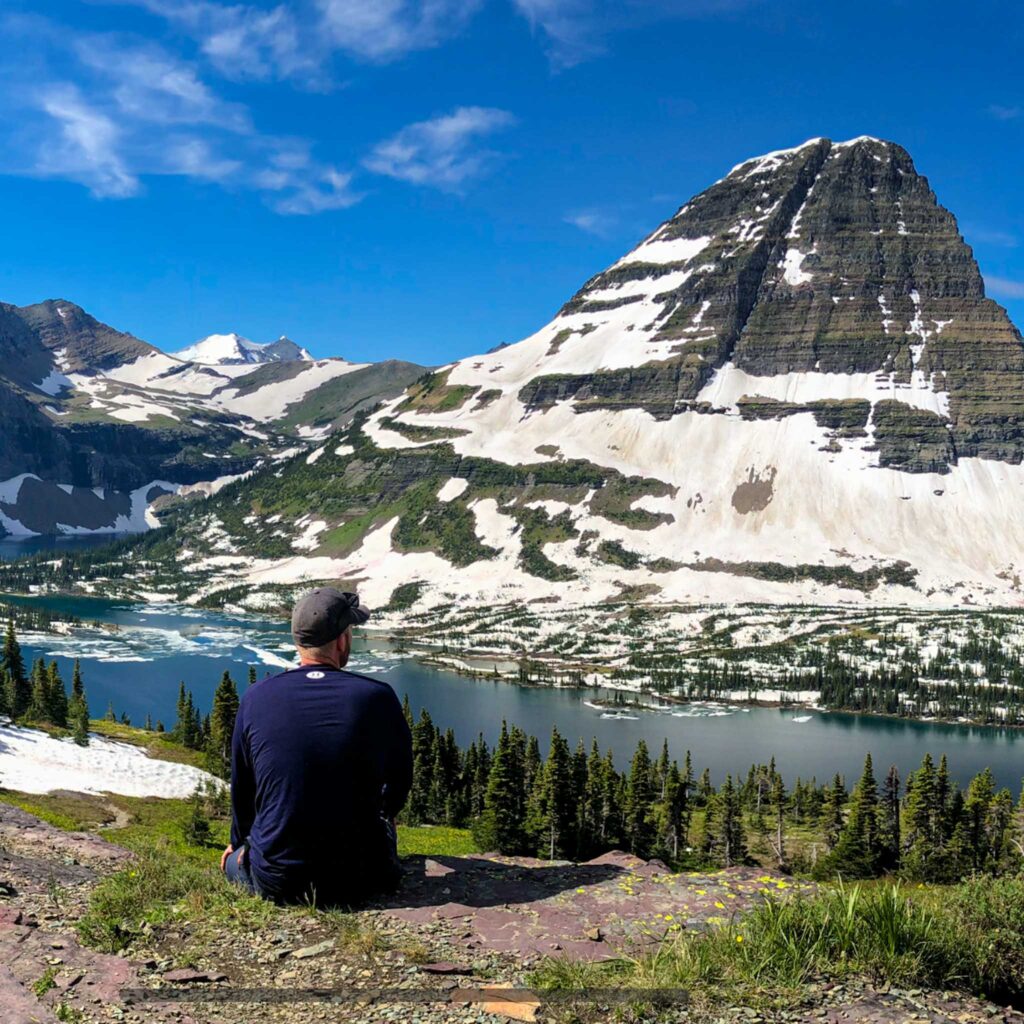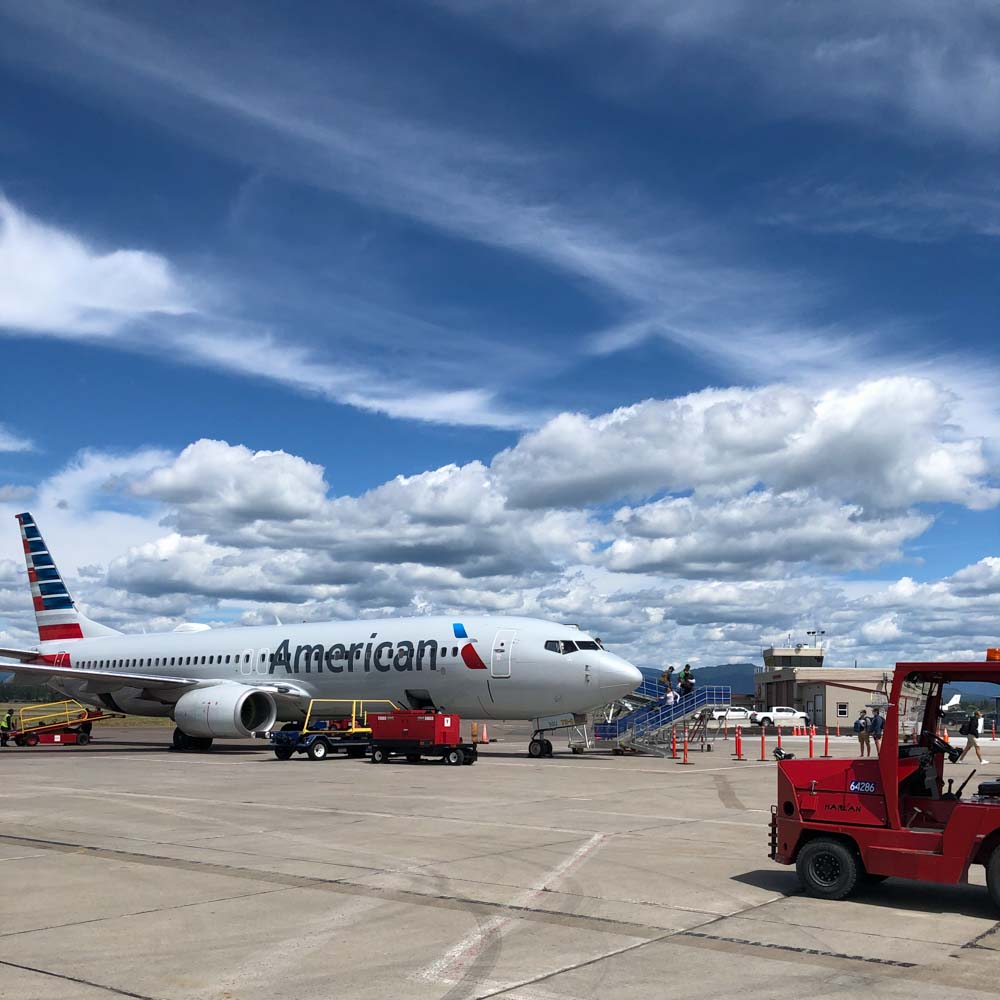Planning a trip abroad, especially for the first time, is no easy task.
Booking flights, shuttles, rental cars, hotels, activities and making sure you’ve packed everything you’ll need for the trip can be overwhelming!
Not to mention all of these things tend to add up in cost very quickly. With so many things that can go wrong what’s a savvy traveler to do? Read this post that’s what!
For this reason I’ve put together a list of 20 tips to help you plan a trip abroad.
You’ll notice some links and advertisements from partner or affiliate sites throughout this post. I typically earn a small commission on any purchases made through those links at no additional cost to you. If you check those out, great. If not, I’m still happy you’re here!
Make an itinerary
Some people hate scheduling out their trips, some people love it.
I tend to fall into the latter camp.
Is this surprising? I mean, I do have an entire website dedicated to travel idea inspiration and planning trips.
There are some activities you need to plan in advance. Why? Well, a lot of popular activities in touristy areas tend to sell out. You literally won’t be able to do them if you don’t plan ahead of time!

Even if a particular activity doesn’t require you to make a reservation in advance, putting together an itinerary can help you budget out your time more effectively.
If you’re strapped for time having an itinerary can help you visualize a plan of attack to hit everything on your agenda.
Grouping together activities that are in close proximity to each other can save you time on logistics.
Other activities can be seasonally dependent. Let’s say you’re planning to visit Rocky Mountain National Park in October.
Chances are the main road will be closed and you won’t be able to experience much of the park. Shoulder season, in situations like this, can ruin a hastily planned trip if you don’t spend time on the details!
Don’t feel obligated to stick to your itinerary
The most important thing to keep in mind when putting together an itinerary is that you don’t actually have to stick to your original plan!
If you end up too tight on time, exhausted, or find something more interesting to do you can always switch up your schedule.
Avoid falling into the mindset that you have to do certain activities when traveling. It’s your vacation, enjoy your time as you see fit!
Carry copies of important documents
The further away from home you’re traveling the more important this tip becomes.
Make copies of important documents such as:
- Passports or travel visas
- Driver’s license
- Insurance cards
- Credit or debit cards
- Print off reservations for hotels, cars and activities
- Trip itinerary
Keeping a folder with hard copies of these documents is not only smart in case you lose something, but it’s also a great way to stay organized.
While you’re at it, snap photographs of these documents as well and keep them stored on your mobile device for an extra layer of protection!
Spend time researching flight options
Booking flights can be one of the most stressful parts of putting a trip together. Often times airfare is the single biggest expense that travelers must shell out in order to reach that dream destination.

Striking a balance between a cheap tickets and good flight times can be more challenging than it sounds.
Fortunately I’ve put together a full guide on the topic you can read that will take you through all of the tips and tricks I use to save on airfare without compromising on convenience!
Visit popular tourist attractions at non-peak times
The Louvre in Paris is one of the most popular tourist destinations in the world and I had heard stories about waiting in mile long lines for hours just to get in.
There are two ways to avoid spending half your day sitting in mood killing lines like these.
First off, buy your tickets in advance! It sounds simple, but even I’m guilty of dropping the ball on this one from time to time.
Putting together that trip itinerary? Use it to be diligent about buying any tickets you’ll need in advance.
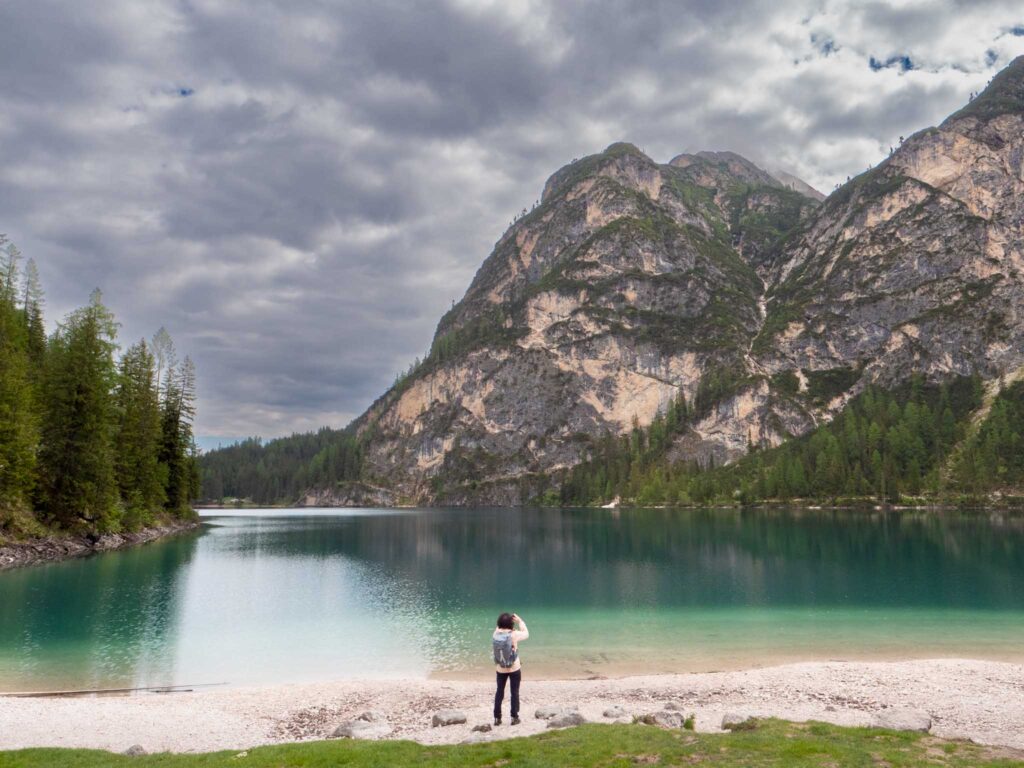
The second way to avoid these lines is to visit at non-peak times,. Visiting early in the morning, around lunch or late in the day are great ways to cut back on long lines. This applies to really popular hikes, lakes and outdoor areas as well.
When visiting the Louvre we arrived 20 minutes before they opened and pretty much walked right in. Once inside it took hours for the museum to fill up, so not only did we skip the lines but we also didn’t have to contend with hoards of tourists for most of the morning!
Search for food off the beaten path
If you want to maximize your dining experience when traveling you’ll need to get creative.
Often times this involves focusing your search for food towards areas that don’t cater to tourists.
Searching for local restaurants with consistently high review scores on the usual websites like Google or Yelp is always a reliable strategy.
But here are two more ways you can dig a little deeper and find some real local gems.
The first tip is to read plenty of travel blogs like these. Whenever I travel I like to use a mix of popping into restaurants we stumble upon by foot, places we find online with solid reviews and my next method.
Ask locals where to eat! They live there after all and can usually point you to places that tourists often overlook. Most locals love the opportunity to suggest their favorite restaurants or bars to visitors.
Not sure who to ask? Tour guides, coffee shop baristas and bar tenders are all great places to start. Don’t be shy!
Try local cuisine, including street food
This travel tip is an extension of finding great local restaurants.
Keep an eye out for street food stands as you wander around the streets of new places that you visit. One of my favorite memories from Valladolid, Mexico was wandering around the town square eating marquesitas, cheesy buttered corn on the cob and bags of Tostitos walking tacos.

But choose carefully and don’t force the issue. While I haven’t personally experienced it, you might be at slightly higher risk of running into a bout of food poisoning when eating from open air foodie stands in crowded areas.
Don’t eat out every meal to save cash
This is more of a budget travel trip. Don’t forget that you can still feed yourself by making meals back at your Airbnb or grabbing a sandwich at a local market.
Buying fresh fruit and bread from a local market can be a budget friendly alternative to eating lunch out at a restaurant. Just one more option to keep in your back pocket! Be mindful that if you plan to cook back at your room you’ll need to book accommodations with a kitchen.
Utilize public transportation
There are a few reasons it makes sense to utilize public transportation when traveling.
The most obvious one is that it will often times be cheaper than renting a car or taking taxis and Ubers. A lot cheaper! Often times a subway or bus ticket will only cost a couple bucks and take you across an entire city.
I’ve found that buses can be a little harder to navigate outside of your home country, but subways are generally pretty easy.

Some cities will even have bike rental stands which is another great way to explore new areas.
Utilizing the public transportation of destinations you visit is a great way to immerse yourself in the local culture as well!
Knowing what options are available to you ahead of time is key to actually being able to utilize them.
Travel with a reusable water bottle
This is a good idea for so many reasons.
First off, you’ll save money by not having to constantly purchase bottled water. This can become particularly expensive in airports! Many major airports and public transportation hubs have water bottle refilling stations.
If you invest in an insulated water bottle it will also keep colder longer. That’s a nice perk when traveling to hotter destinations
Hydro Flask 32 oz Reusable Water Bottle
Traveling internationally to a country where you can’t drink the tap water? You may end up needing to purchase bottled water in these situations. But having a reusable water bottle handy can help you take advantage of the occasional refill opportunity.
Take a walking tour to get acclimated
Not only is this a great way to learn the layout and history of your destination. But it’s also a great way to get a local’s perspective for what’s going on in town.
Many walking tour guides will also know the best bars and restaurants where you are staying. Befriend these people! Ask them any and all questions you might have.
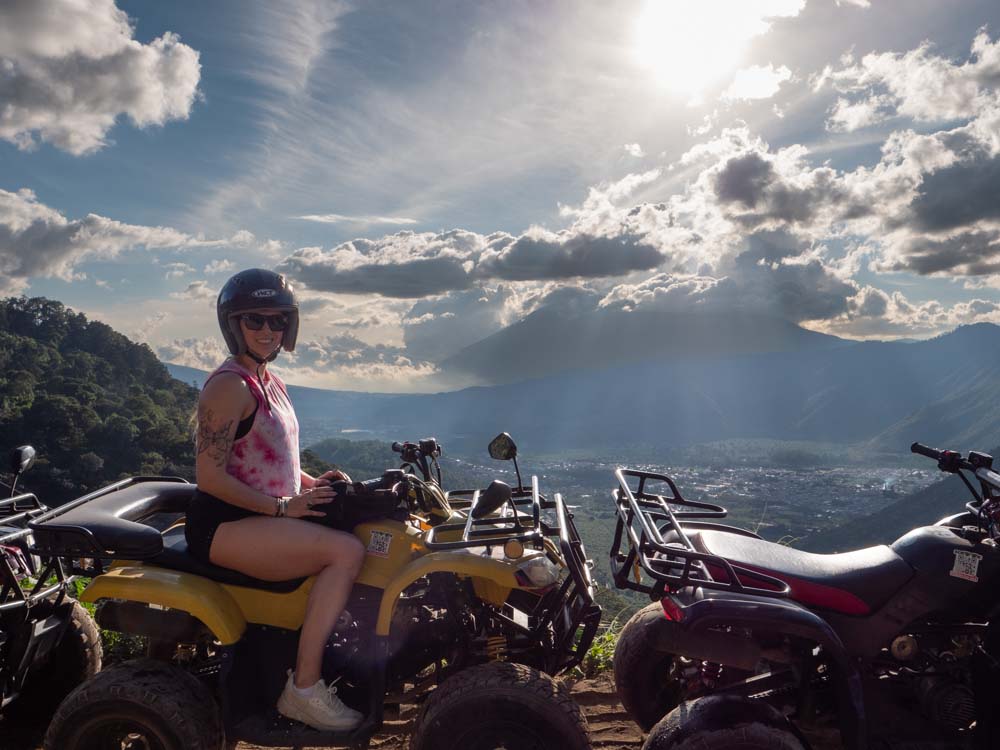
Walking tour not your cup of tea? You can usually find equally useful activities done via bus, boat, ATV, E-bike, etc.
Don’t forget to barter at markets
Depending on where your travels are taking you there may be opportunities to shop local markets that are likely to require some degree of bartering to get a fair price.
If you’re like me (tall white dude with a ginger beard) you probably stick out like a sore thumb on a local’s tourist radar. In certain parts of the world this means vendors will attempt to charge you a higher price than locals.
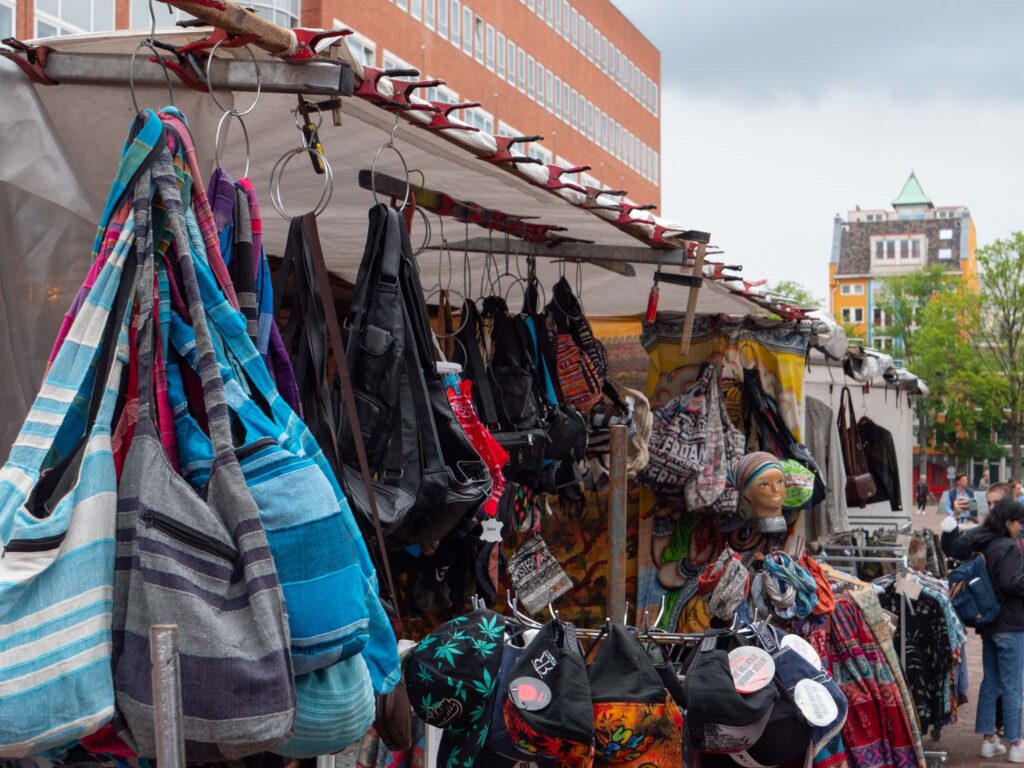
On the surface, this seems unfair. But depending on where you’re visiting keep in mind that your standard of living and annual income is likely much higher than the locals selling goods at a small market.
Ultimately those people are just trying to put food on the table.
Find a balance when it comes to bartering. You don’t want to get ripped off but if you can afford to pay a bit more than the local price just remember that you’re helping a small business owner provide for their family.
Connect with local tourism boards
Admittedly this is a strategy that I often overlook. A big reason for that is that I typically have a jam packed itinerary before I even land wherever it is that I’m traveling.
A good example of this strategy paying off was during a trip to Switzerland where we planned to visit Jungfrau Mountain aka the Top of Europe. It was an incredible mountain experience but the logistics of getting there can be quite challenging.
Not only that but the view up top can be completely obscured by dense cloud cover since you’re at such a high altitude.
Luckily the town we were staying in had a local tourism office. We popped in and they helped us with all of the logistics and even pointed us to a weather camera located on the mountain. With this webcam knowledge we were able to time our visit perfectly to avoid poor visibility.
Had we not checked in we would’ve gone a day earlier and had zero visibility due to the weather!
Put credit card points to work
You can also reach out to tourism boards in advance. They usually have a packet of information about their city that they’re happy to provide travelers over email.
I do love credit card points. To me they’re like a travel piggy bank. As a I travel I slowly accumulate points that can be used on free flights, cars and hotels. Not only that but a good airline credit card can also reward you with tier status. Free first class upgrades? Don’t mind if I do!
Ultimately credit cards are a zero sum game. Credit card companies dish out huge sign up bonuses and credit card points for your daily spending to incentivize you to use their cards for purchases.
They fund these bonuses and point perks through the fees they charge merchants and the interest they collect from users who don’t pay their bills in full each month.
Some people hate the idea of credit cards. I mean, I get it, to an extent.
But it’s also a reality of the world we live in.
If you aren’t taking advantage of these perks then you’re just losing out to the people who are.
A generic travel credit card from the likes of Amex or Chase will offer flexibility in terms of what you can spend your points on so that’s a great starting point if you’re n the market for a new card.
Additionally I’d recommend credit cards tied to the major airlines. Usually you earn points at a decent rate and you’ll usually get free checked bags if you book your plane tickets on that card.
Avoid branded credit cards that will overly restrict your ability to redeem points. Make sure the airline card you pick up is one that offers plenty of flights from your home airport!
Redeeming points for a free flight or hotel stay is a great way to turn that bucket list trip into reality without crushing your bank account.
Ensure your target activities are in season
You need to be careful when booking discount vacation packages, super cheap flights or deals that otherwise sound too good to be true.
There are definitely real deals out there to be had. But a lot of the time these hard to beat rates won’t be for peak season. Don’t get tunnel vision when you find a cheap rate, make sure the dates work for your target activities.
Are you a sports fan? Don’t forget to check out the local team schedules early in the planning process! I’m guilty of looking into sporting events late in the planning process. Sometimes I could have easily flexed my dates to catch a game if I had done the research.
Check multiple sources before booking
This tip can be a bit of a Pandora’s box when you really dig into it.
There are nearly endless options for where you can book your flights, hotels, rental cars and activities.
When it comes to flights I always like to start with Google Flights since you can easily scan across different airlines and nearby airports. If you have the luxury to flex your dates around a bit that can also help you save on airfare.
Once I have a general feel for what airlines are offering the best flights for my destination I usually head over to that airlines website to see how the costs compare to what Google was showing.
From there I usually check at least one discount travel website (like Kayak, Expedia, Travelocity or others).
If you have a travel credit card (think Amex or Chase) be sure to check the credit card programs travel booking website as well.
It isn’t uncommon for the cost of a particular flight, hotel or rental car to vary widely depending on where you look. Part of why prices can vary so much across websites is because many people don’t check different sources before booking.
Don’t bounce around too quickly
I break this rule all the time and every time I do I regret it.
It’s easy to get excited when planning a trip, especially somewhere new or far away.
Often times when visiting a new country or geographic region I start trying to hit everything within a stones throw of where I’m staying.
This can lead to burn out and fatigue which will end up doing more harm than good, no matter how badly you want to squeeze an extra city into that European getaway!
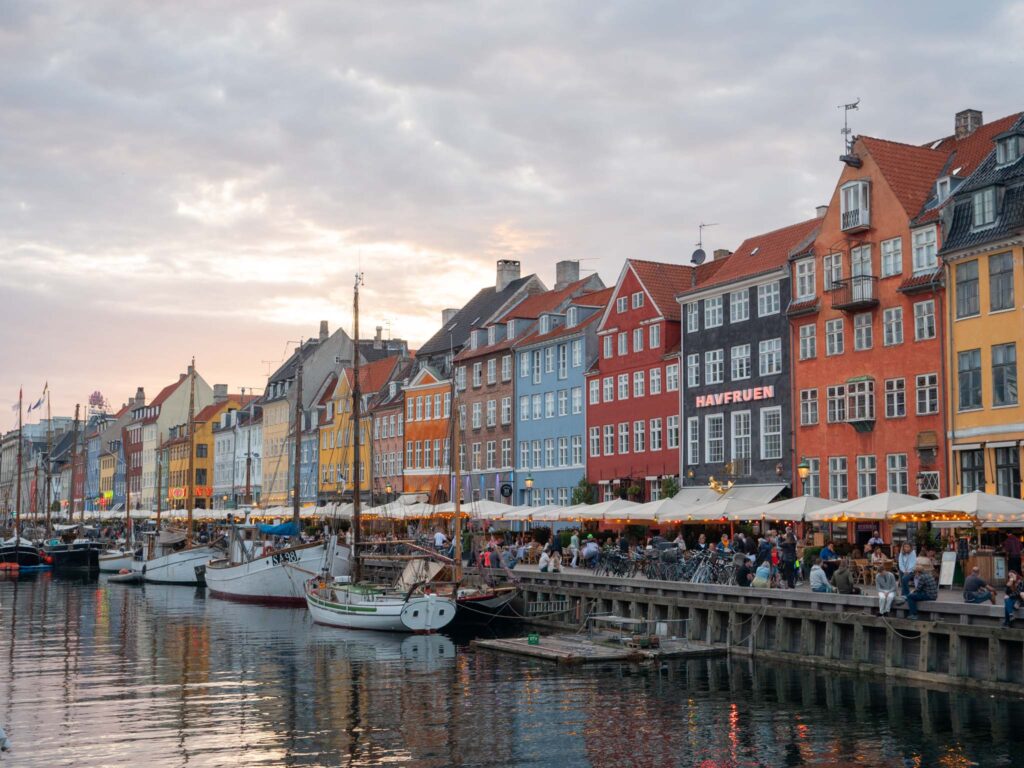
Putting in place proper travel logistics and accommodations can be expensive so we naturally want to maximize the value we’re getting when spending our hard earned cash.
Trust me, I get it!
Not only can trips be expensive, but securing enough time away from work and life can also be a challenge.
Avoid stretching yourself too thin during the planning stages. Have some activities (or day trips) in your back pocket and make the decision once you’re already on the road. I promise you’ll still find plenty of ways to fill your time.
Bring proper electrical adapters and converters
If you’re traveling internationally be sure to spend some time researching how the electrical outlets are configured where you’re staying.
You need to check if an adapter and or converter is required and be mindful that these are two very different things.
An adapter will allow your devices to plug into outlets that are different shapes than what’s in your native country.
A voltage converter will ensure your devices are compatible with the type of voltage coming out of the wall outlet. Usually higher end electronics (laptops, cell phones) can automatically convert the voltage on their own and will only require an adapter.
Below is a link to a combination converter and adapter available on Amazon:
BESTEK Universal Travel Adapter 100-220V to 110V Voltage Converter
Less sophisticated devices (such as hair dryers) will require an adapter that can also convert the voltage. If you try plugging these devices in they could be damaged and ruined.
Bring backup cards and emergency cash
Sometimes people lose things.
And just because I have a travel blog doesn’t mean I’m any better at not losing things than the next person.
One time I left an iPad in the back of an airplane seat pocket. D’oh.
I never saw that thing again, despite my best efforts nagging the airline.
In the same way you‘d buy insurance to protect your car against an unexpected accident, having a backup form of payment is insurance against losing your wallet.
Having credit card information stored digitally or through a system like Apple Pay is also a smart move.
But it can never hurt to take it a step further. It’s a good idea to keep an extra debit or credit card separate from your wallet or purse. Leave a copy back in your suitcase at your hotel.
Also consider keeping some emergency cash in a separate place as well. Some parts of the world (even the developed ones) prefer cash. If you lose your wallet you’ll need some cash for food and transportation while you figure things out!
Consider purchasing travel insurance
This tip is especially relevant in a post COVID world.
Old me turned down every opportunity presented to insure any part of my travels. I had always been comfortable with the risk that if something went wrong I could figure it out or that it wouldn’t be THAT expensive.
Back in March of 2019, I had a 2-week trip to Europe scheduled that spanned multiple countries. COVID had other plans. The night prior to departure was when the United States announced it would start shutting down international travel.
Since it was so close to travel time, the vast majority of my plane tickets, lodging reservations, train tickets and so forth were rendered useless.
Recovering fares from smaller European airlines that would eventually go bankrupt was a losing battle.
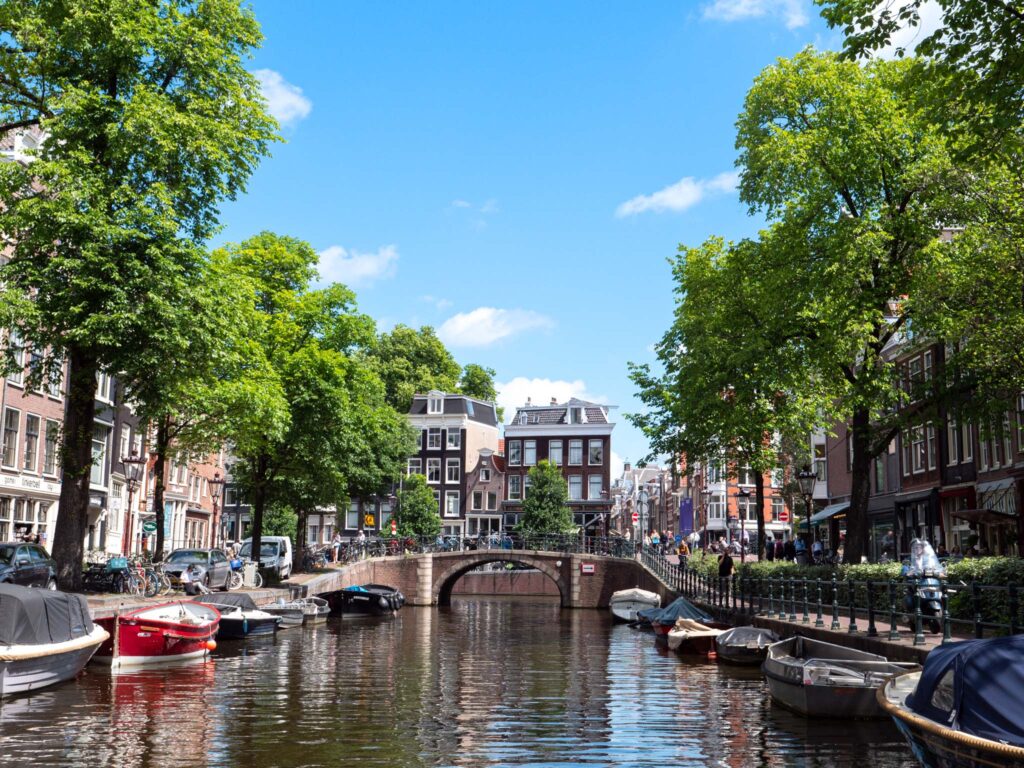
I never heard back from the hotel I booked in Amsterdam and I was only able to salvage around 25% of the money paid to Airbnb.
I figured the only way a trip like that would turn into a complete loss was if I was on my death bed in the days leading up to it. Lesson learned.
Do I insure every part of every trip I take? No. But I’m much more sensitive to picking up insurance for the pieces I can’t afford to lose out on or if I think any aspect of my trip is higher risk for cancellation.
Hopefully this list of tips and tricks helps inspire you to plan a trip abroad this year!
